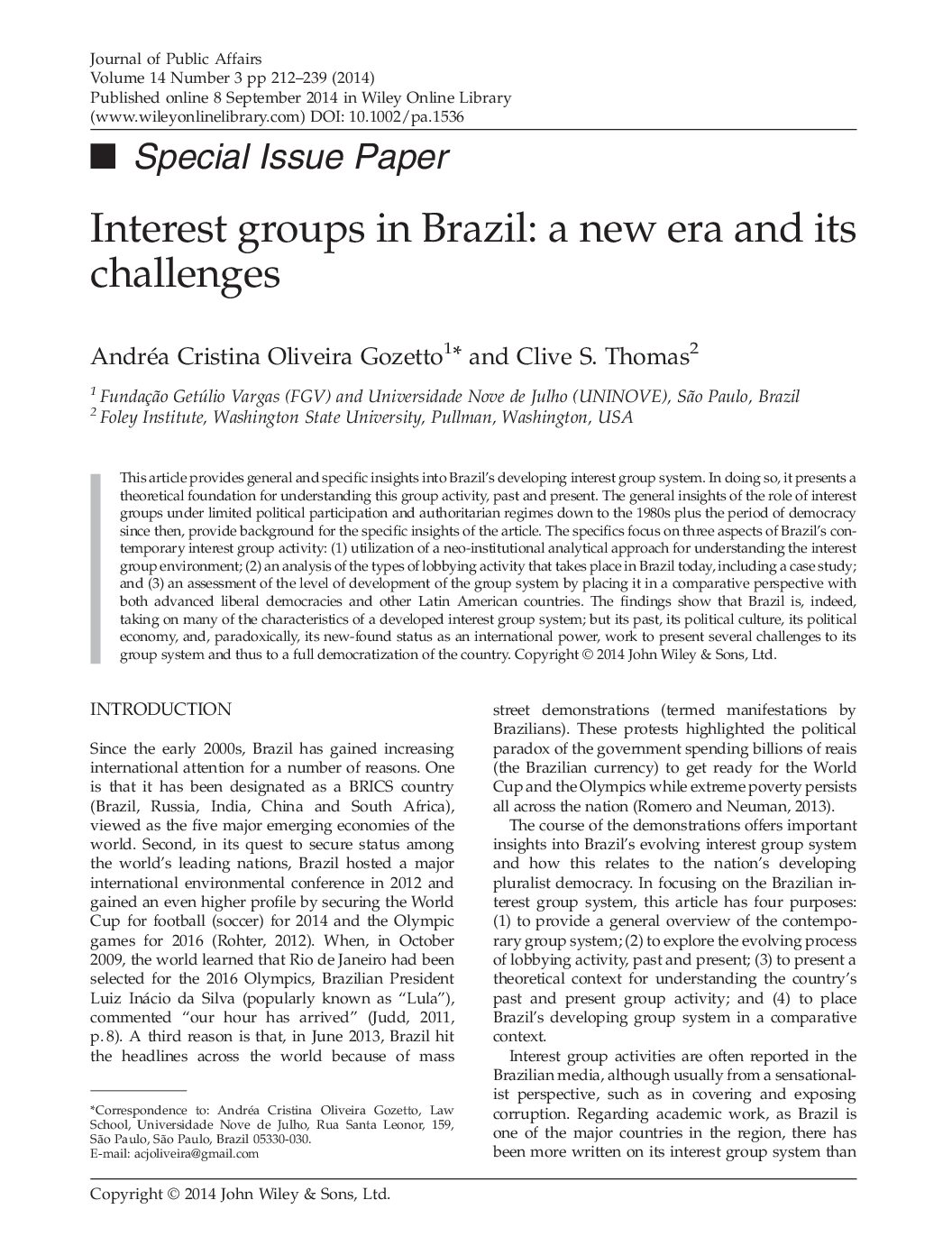
Lobby and Public Policies
13 de November de 2024
Income Protection for Vulnerable Groups During the Pandemic in Brazil and Chile: The Relevance of Policy Trajectories and Governance Arrangements
6 de January de 2025Authors: Andréa Cristina Oliveira Gozetto, Clive S. Thomas
Abstract:
This article provides general and specific insights into Brazil’s developing interest group system. In doing so, it presents a theoretical foundation for understanding this group activity, past and present. The general insights of the role of interest groups under limited political participation and authoritarian regimes down to the 1980s plus the period of democracy since then, provide background for the specific insights of the article. The specifics focus on three aspects of Brazil’s contemporary interest group activity: (1) utilization of a neo-institutional analytical approach for understanding the interest group environment; (2) an analysis of the types of lobbying activity that takes place in Brazil today, including a case study; and (3) an assessment of the level of development of the group system by placing it in a comparative perspective with both advanced liberal democracies and other Latin American countries. The findings show that Brazil is, indeed, taking on many of the characteristics of a developed interest group system; but its past, its political culture, its political economy, and, paradoxically, its new-found status as an international power, work to present several challenges to its group system and thus to a full democratization of the country. Copyright © 2014 John Wiley & Sons, Ltd.
Source: https://onlinelibrary.wiley.com/doi/full/10.1002/pa.1536

